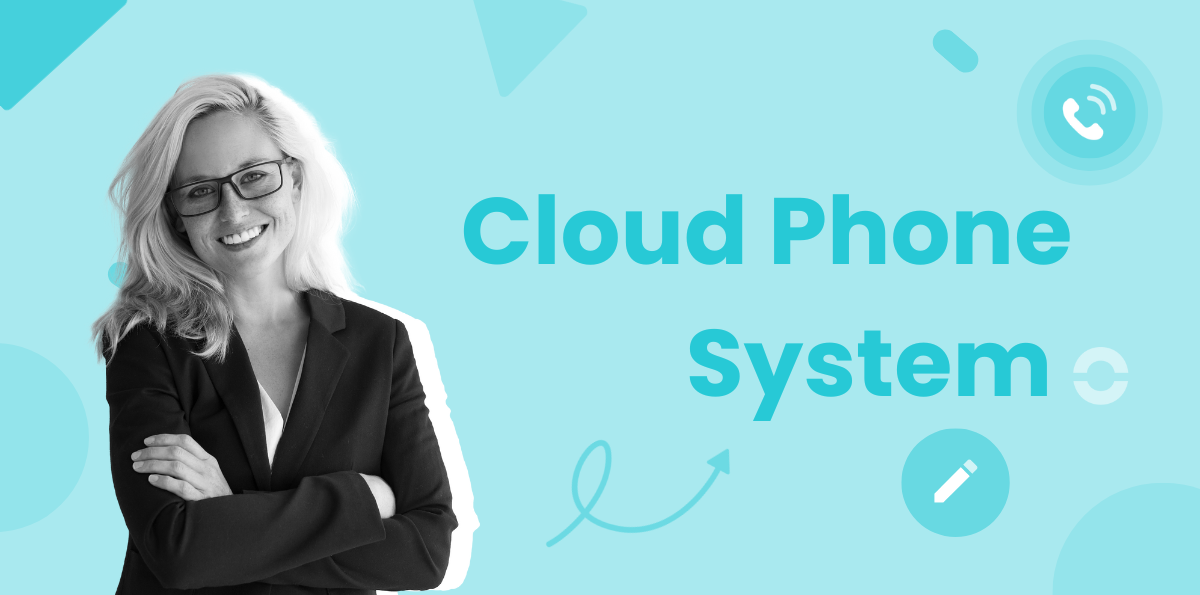Summary
With sensitive messages and client data flowing through the cloud, understanding the security measures in place is essential. This article explores how modern cloud phone systems safeguard your information and outlines the steps businesses should take to keep communications private and secure.
Understanding Cloud Phone System Security
A cloud phone system routes voice and messaging over the internet rather than through traditional copper lines, which introduces unexpected risks into the business.
Some of these risks include the interception of VoIP traffic, unauthorized access to accounts, and improper handling of recorded calls or contact data.
Security in this context, therefore, means protecting data in transit and at rest, controlling access to the service and management console, and ensuring the provider and its hosting partners follow strong operational and legal controls.
Key Security Features of Cloud Phone Systems
- End-to-End Encryption: This means your voice calls, messages, and files are scrambled into unreadable data during transmission and can only be unlocked by the intended recipient. Even if someone intercepts the data mid-transfer, they won't be able to understand it.
- Multi-Factor Authentication (MFA): Rather than relying on a password alone, MFA requires an extra step, such as a code sent to your phone or a fingerprint scan, making it far harder for cybercriminals to gain access.
- Role-Based Access Control: Not every team member needs full system access. With this feature, you can give each user permissions based on their role, reducing the risk of accidental or malicious misuse.
- Regular Security Updates: Hackers constantly look for weaknesses. Cloud phone providers release security patches to address these threats, keeping your communication system a step ahead.
- Automatic Backups: If data is lost due to human error, system failure, or cyberattacks, automatic backups ensure your critical call logs, voicemails, and records can be quickly restored.
What Businesses Can Do to Stay Secure?
- Train Employees on Security Best Practices: Human error is a leading cause of breaches. Teaching staff how to spot fraudulent emails, use secure passwords, and follow safe communication habits can significantly reduce risks.
- Implement Strong Password Policies: Require passwords that are long, complex, and changed regularly. This makes it much harder for hackers to guess or crack into business accounts.
- Restrict Access Privileges: Give employees access only to the tools and information they need for their job. This minimizes damage even if an account is compromised.
- Regularly Review System Activity Logs: Monitor who is logging in, from where, and what changes they are making. Detecting unusual activity early can prevent serious breaches.
- Work with a Trusted Cloud Phone Provider: Partner with a provider that not only offers advanced security features but also complies with industry standards like GDPR or HIPAA, depending on your business sector.
How Ringover Maintains Security?
- End-to-End Data Encryption: Ringover safeguards every call, message, and file with encryption that protects information both in transit and at rest. This means data remains secure not only while being sent but also while stored on servers, keeping it inaccessible to unauthorized parties at all times.
- Secure Access Controls: Only authorized team members can access sensitive information, with multi-factor authentication adding an extra layer of protection against unauthorized logins.
- Regular Security Audits: Ringover's systems are reviewed and tested frequently to identify and patch vulnerabilities before they can be exploited.
- Compliance with Industry Standards: The platform meets strict regulatory requirements such as GDPR, giving businesses confidence that their communication data is handled responsibly.
- Reliable Cloud Infrastructure: Data is hosted on secure, high-availability servers, ensuring both safety and uninterrupted service, even during peak usage or unexpected events.
Is a Cloud Phone System Secure Enough?
Yes, but when both the provider and the customer follow best practices.
Modern cloud phone platforms implement industry-standard encryption and offer technical measures to support compliance obligations. Having said that, businesses play a big role in maintaining that security by being responsible for secure account configuration and employee training.
Choosing the right provider with clear security documentation and certifications reduces the risk of security breaches and makes cloud telephony an acceptable option for business communication.
Published on August 20, 2025.


